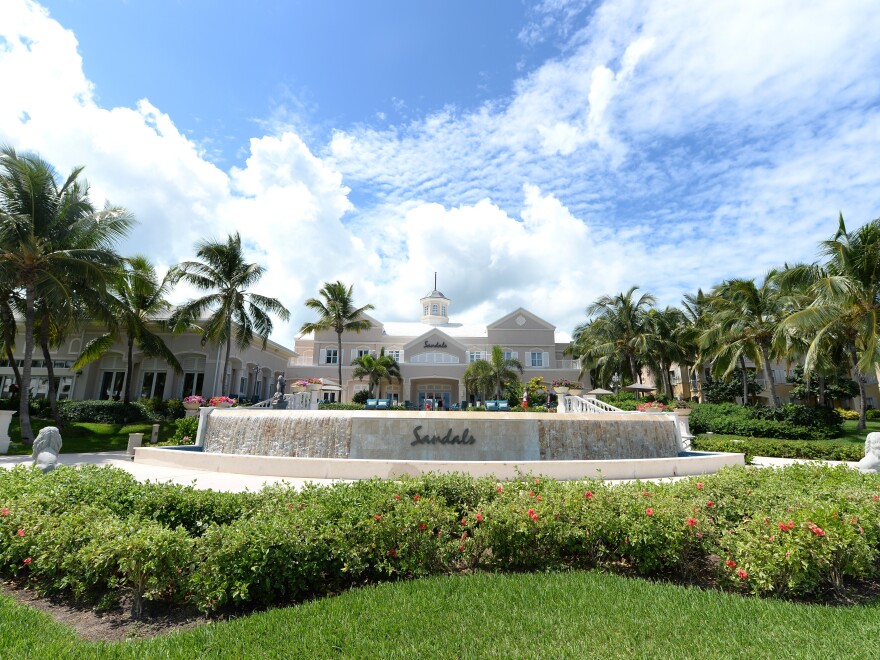The Royal Bahamas Police Force has released the names of three American tourists who died under mysterious circumstances at a resort last week.
Michael Phillips, 68, of Tennessee and his wife Robbie Phillips, 65, were found dead in a villa at the Sandals Emerald Bay resort in Great Exuma on Friday. In a separate villa at the same resort, Vincent Paul Chiarella, 64, of Florida was also found dead.
There were no signs of trauma found on any of the deceased, according to police, though both Michael and Robbie Phillips "showed signs of convulsions."
Chiarella's wife, Donnis, was also at the resort and fell ill. She was airlifted to a Miami hospital and was last listed in "serious condition," according to Royal Bahamas Police Commissioner Paul Rolle.
What caused the deaths of the Americans is not yet clear, Rolle said, though autopsies were scheduled for Monday.
"The pathologist has extracted samples from all the patients and our forensic scientists have collected those samples for examination," Rolle said at a press conference. "We are actively engaging a lab in Philadelphia ... to assist us with the expediting the toxicological examinations of all of these samples."
Once those examinations are done, the pathologist in the Bahamas will be able to determine the cause of death and resolve the mystery surrounding the sudden deaths, he said. Additionally, samples have been collected from rooms at the Sandals resort to test for contaminants that might be present.
Prior to the deaths, some other guests sought treatment at a clinic on Thursday for symptoms of nausea and vomiting, Health Minister Dr. Michael Darville told Eyewitness News Bahamas. He said they were seen and then discharged themselves.
Multiple teams, including some environmental scientists, were brought in to ensure there is no public health issue, Darville said. When asked about the resort, Darville said the emergency medical team believes it is a safe environment.
"We feel that what we are seeing is an isolated case, associated in a particular area," Darville said. "We thought we might have to make a makeshift facility, mini hospital — that's proving to be not the case."
Copyright 2022 NPR. To see more, visit https://www.npr.org.





